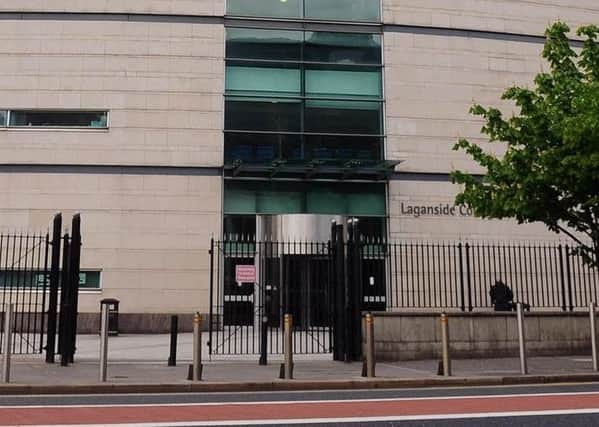Judge overruled terror suspect bail objections


The News Letter has learned Carl Reilly, aged 41 and from Pollard Close just off the Springfield Road in west Belfast, was bailed with a string of conditions last week despite the PPS objecting on a variety of grounds to his release.
He faces charges of directing a terrorist organisation (namely the IRA) between early 2014 and late 2015, and belonging to a proscribed group (again, the IRA) during the same time period.
He has not entered pleas to the charges.
Advertisement
Hide AdAdvertisement
Hide AdHowever, previously the court had been told he gave a statement to police rejecting the allegations.
His trial is due to be a Diplock (non-jury) one.
Although the Courts Service said it did not have a record of when he was arrested, News Letter clippings seem to show he first appeared in court in October 2015.
He has repeatedly asked for bail, but last week was the first time it had been granted when Judge Miller agreed to release him on Thursday at Belfast Crown Court.
We have since asked the PPS if it raised any objections to this, and it responded: “Yes, we opposed bail on this occasion and previous occasions.
Advertisement
Hide AdAdvertisement
Hide Ad“We presented a number of objections to bail being granted including a risk of re-offending, flight risk, and potential threat to the public.
“These objections were informed by police views.”
The PSNI said it has “objected to every bail application made by Carl Reilly since he was remanded in custody” for the same reasons outlined by the PPS.
On April 1 the News Letter had revealed that due to a courtroom mishap the PPS had not objected to bail for another dissident – who was then granted bail unopposed.
Asked why Reilly had been released on bail, and whether the case of dissident suspect Damien McLaughlin (who absconded while on bail last year) was considered in the decision-making, the office of the Lord Chief Justice – responsible for the Province’s judiciary – issued a largely-indistinguishable response from one it gave in March when asked about bail for a different dissident.
Advertisement
Hide AdAdvertisement
Hide AdIt said: “Since the incorporation of the European Convention on Human Rights into domestic law through the Human Rights Act 1988, the judiciary are obliged to release applicants on bail unless certain circumstances are established in court.
“There is a presumption in favour of the granting of bail.
“Invariably, however, a judge must consider whether or not the prosecution have established a recognised risk, such as the defendant being likely to re-offend or interfere with witnesses or leave the jurisdiction.
“If such a risk is identified then the court has another step to consider.
Advertisement
Hide AdAdvertisement
Hide Ad“Again, this is a legal requirement. The court must decide if a condition or conditions might be attached to the bail to prevent the risks identified by the prosecution arising.
“Unless there is a risk, and no conditions may be applied to address the risk, then the judge must release the defendant.
“In this case the judge referred to the delay in proceeding with the case and sought submissions from counsel on the conditions that could be put in place to address the risk of the defendant absconding or reoffending.”
Reilly’s terms of release are: He must observe a 9pm to 7am curfew, enforced by an electronic tag, and must appear at the door if police demand;
He must report five times a week to the PSNI;
Advertisement
Hide AdAdvertisement
Hide AdHe must not travel in a private vehicle except for work purposes (although not work as a taxi driver), legal visits, court appearances, signing bail, or being driven by his wife in her vehicle;
He must not attempt to contact co-accused Paul Crawford or any crown witnesses;
He is not allowed a computer or any internet access (except for work) and must possess only a single mobile phone which must be declared to police.
He must surrender all passports to police and is not to travel outside Northern Ireland without approval of the court.
Sureties totaling £15,000 have also been provided.